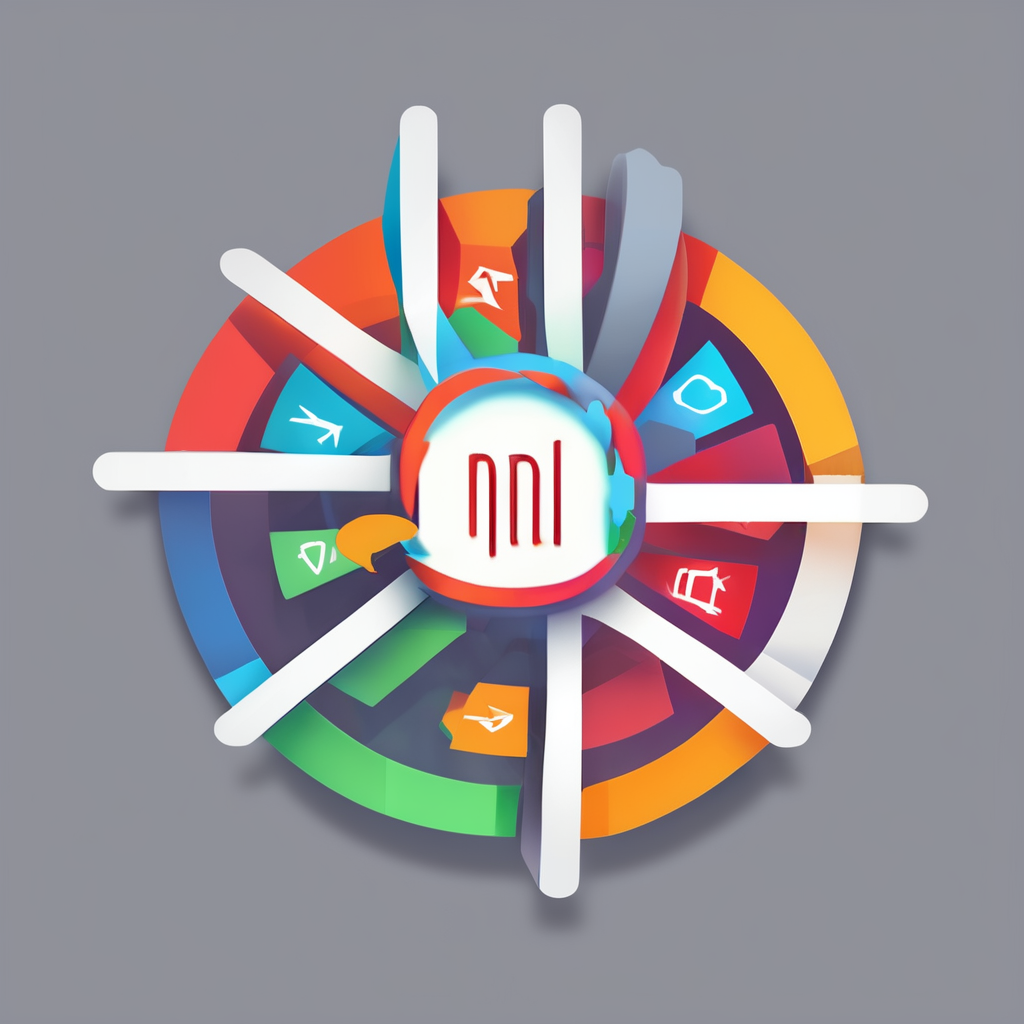Overview of Game Development Tools
Navigating the vast landscape of game development requires selecting the appropriate tools, vital for crafting engaging experiences. Choosing the right tool can significantly impact efficiency and the final product’s quality. Different types of game development tools, from 2D asset production to 3D rendering engines, serve diverse developmental needs. Identifying one that matches the project’s scope is crucial.
Several trends currently drive the popularity of specific tools. The surge in indie development has popularized tools like GameMaker Studio. Its ease of use makes it a darling among small teams and solo creators looking to produce polished games without extensive resources. In contrast, advanced game engines like Unreal Engine cater to large studios, offering high-powered rendering and robust capabilities essential for creating immersive experiences.
In parallel : Showcasing your gaming prowess: unlocking the power of social media promotion
Another trend involves the integration of virtual reality and augmented reality support, propelling developers toward tools ready for these emerging platforms. As technology advances, development tools evolve, incorporating features that cater to the industry’s future needs. Staying updated on these trends helps developers choose tools aligning with current demands and anticipating future directions. Through careful software comparison, developers can ensure that they harness the top tools available to bring their visions to life.
Criteria for Selecting Game Development Tools
When selecting game development tools, it is crucial to focus on the features and usability that best suit your project’s needs. Whether you’re an indie developer or part of a large studio, understanding these criteria will guide you toward the right choice.
Also to read : Mastering the art of balancing gaming and life’s responsibilities
Key Features to Consider
Start by evaluating the essential features of the tool. Does it support the game development objectives you’re pursuing? Tools like Unity are renowned for their extensive asset stores and multi-platform deployment capabilities, making them favourites for diverse projects. Meanwhile, features such as integrated virtual reality support are pivotal for developers venturing into immersive platforms.
User Experience and Interface
The usability of a tool dramatically affects productivity. Choose a tool with an intuitive user interface to streamline your workflow. This enables developers to focus more on creativity rather than navigating complex software. User-friendly design enhances accessibility, particularly for beginners, ensuring that more time is spent on innovation rather than troubleshooting.
Pricing and Licensing Models
Finally, consider the tool’s pricing structure. Free tools can be enticing but may lack advanced features offered by paid versions. Evaluate your budget against the licenses available to ensure you’re not sacrificing essential capabilities. Balancing functionality and cost is key to leveraging the full potential of your chosen tool.
Top-Rated Game Development Tools
In the realm of game development, selecting the best tools can greatly enhance project outcomes. Among the top-rated tools, popular tools such as Unreal Engine, Unity, and GameMaker Studio offer diverse functionalities.
Unreal Engine
Unreal Engine stands out with its cutting-edge graphics capabilities and robust performance, favoured by large studios for creating high-end, immersive games. Its vast library of assets and comprehensive toolset enables developers to produce visually stunning games efficiently.
Unity
Known for its versatility, Unity is treasured by indie developers and large studios alike. It supports a wide range of platforms, offering a flexible and scalable solution. Unity’s user ratings highlight its ease of use and comprehensive community support, making it a reliable choice for various project types.
GameMaker Studio
For those new to game development or working within smaller teams, GameMaker Studio offers a simplified yet powerful solution. It excels in 2D game production, with user-friendly interfaces that simplify the development process. The supportive community and accessible resources enhance its appeal further, regardless of experience level.
Each of these game engines caters to distinct developmental aspirations, supported by strong community networks. User reviews continually guide developers in choosing tools aligned with their project goals and expertise.
Pros and Cons of Each Tool
Choosing the right game development tool hinges on weighing each option’s advantages and disadvantages. Here’s a focused examination of leading tools like Unreal Engine and Unity, guided by user feedback.
Pros of Unreal Engine
Unreal Engine’s standout features include exceptional graphics capabilities and a comprehensive toolset. Large studios praise its ability to create immersive and visually stunning games. Users appreciate the engine’s vast asset library and strong community support, which significantly enhances development efficiency and output quality.
Cons of Unreal Engine
Despite its strengths, Unreal Engine’s complexity presents a steep learning curve, especially for beginners. The resource-intensive nature of its high-powered graphics can be demanding on systems, occasionally requiring substantial hardware upgrades.
Pros and Cons of Unity
Unity offers incredible versatility, supporting a wide range of platforms and catering to diverse project needs. Its user-friendly interface and extensive support network make the development process more accessible.
However, some users note that Unity’s graphics capabilities might not match the cinematic standards of Unreal Engine. Despite this, its affordability and scalability maintain its popularity among developers of various experience levels.
Ultimately, evaluating the pros and cons is crucial for developers aiming to align their tool choice with specific project goals and expertise levels.
Recommendations Based on Use Cases
Choosing the right game development tools depends on specific needs, making it crucial to tailor selections based on team size and project scale.
Best Tools for Indie Developers
For indie developers, tools like GameMaker Studio shine due to their ease of use and efficient setup for smaller projects. Its intuitive nature allows developers to focus on creativity without getting bogged down by complex systems. The tool’s supportive community provides a rich resource for troubleshooting and learning.
Tools for Large-Scale Studios
Large-scale studios benefit from the robust capabilities of Unreal Engine. This engine delivers high-quality graphics and ample support for complex, immersive projects. Its comprehensive feature set enables teams to push creative boundaries, ensuring a polished final product.
Recommended Tools for Beginners
Beginners should consider tools with user-friendly interfaces like Unity. Its balance of functionality and accessibility supports newcomers in learning basics while offering room for growth. Unity’s extensive tutorials and user community are invaluable resources for those starting their game development journey.
In all cases, selecting tools aligned with development stages enhances productivity and ensures that the team’s creative vision is effectively realized.
Industry Trends Influencing Tool Development
In the rapidly evolving world of game development, staying abreast of emerging trends is crucial. The integration of virtual reality and augmented reality is profoundly transforming tool features. Tools are increasingly equipped with capabilities to support these technologies, ensuring developers can create more immersive experiences.
Virtual reality has revolutionised how players interact with games, driving the demand for tools like Unreal Engine and Unity to offer advanced support and seamless integration for VR projects. Augmented reality continues to expand its footprint across mobile platforms, influencing developers to seek tools that accommodate AR functionalities.
Another pivotal trend impacting game development tools is the rise of artificial intelligence in gaming, which fosters innovation by allowing developers to create more dynamic and responsive gaming environments. Tools are being adapted to incorporate AI algorithms, enabling smarter NPCs and gameplay mechanics.
As these future technologies gain traction, the game development landscape is anticipated to shift. Developers are encouraged to adopt forward-thinking tools that align with industry advancements, ensuring their projects remain relevant and competitive. Staying informed on these trends aids developers in making strategic software comparisons to harness cutting-edge features.
Expert Opinions and User Testimonials
Exploring game development tools can be more insightful with expert reviews and real-world user experiences. These accounts provide valuable insights into selecting suitable tools for your project, offering a composite view of their strengths and limitations.
Insights from Industry Professionals
Experts in game development often highlight the essential features and capabilities of popular tools. Their analyses emphasize tools such as Unity for its flexibility across platforms and Unreal Engine for outstanding graphics. This professional perspective aids developers in making informed decisions by outlining each tool’s technical prowess and potential limitations.
User Testimonials from Developer Communities
User testimonials underscore the practical aspects of tools like GameMaker Studio, praised for its simplistic approach and supportive community network. Developers frequently share experiences in forums, detailing how particular tools enhanced productivity or posed challenges. These vibrant communities also serve as a repository of collective knowledge, where shared solutions and strategies facilitate a better understanding for newcomers and seasoned developers alike.
Leveraging both professional and user-generated insights ensures comprehensive evaluation of tools, building trust in tool recommendations based on balanced feedback. Engaging with developer communities fosters continuous learning, enriching developers’ tool selections through shared, real-world experiences.
Resources for Further Exploration
Expanding your knowledge in game development is crucial for mastering the craft. Thankfully, numerous additional resources and community forums are available to enhance your understanding of each tool’s capabilities and nuances.
Official websites for top tools like Unreal Engine and Unity offer comprehensive documentation and guides, essential for direct downloads and exploring their full potential. User forums such as Unity Community and Unreal Engine Forums act as goldmines of user experiences, where you can find discussions on overcoming common hurdles and tips for optimising development workflows.
Furthermore, online platforms like Udemy and Coursera provide game development education, offering courses tailored to different skill levels and specializations. They feature expert instructors guiding you through the intricacies of tool functionalities and design principles, fostering a deeper technical know-how.
For a more personalized learning approach, many developers turn to YouTube channels dedicated to game development tutorials. These channels often break down complex concepts into digestible sessions, allowing you to enhance skills at your own pace.
Engaging with these resources not only broadens your understanding but also connects you with a supportive network eager to share insights and solutions.






